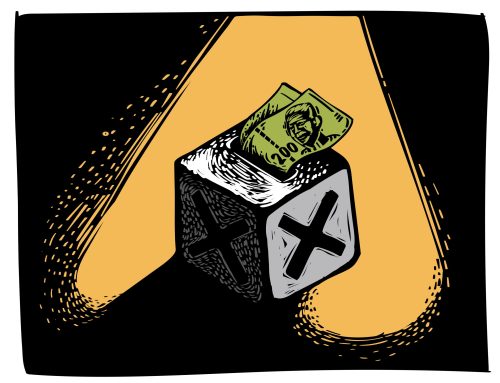On 30 April 2025, the Electoral Commission (IEC) published its Annual Political Party Funding Report (the Report), which covers the reporting period 01 April 2023 to 31 March 2024. The Report provides detailed information about the private and public sources of parties’ funding during the reporting period, which fell just before one of the most consequential elections in South Africa’s democratic era. Today, My Vote Counts (MVC) releases its analysis of the Report, which seeks to summarise its key takeaways, highlight anomalies that require further clarification, and unpack what the Report reveals about the efficacy of South Africa’s political funding regime.
Much-awaited political funding data from FY2023/2024 released
The Political Funding Act (PFA) requires the IEC to publish an annual report presenting the previous financial year’s political funding data, based on extracts from parties’ audited annual financial statements. Although we have had regular access to information about parties’ private donations since 2021 thanks to the IEC’s quarterly disclosure reports, these reports only cover donations that exceed the PFA disclosure threshold. In contrast, the Report provides a far more detailed breakdown of party funding in FY2023/2024. It discloses the amount of public funding represented parties (i.e. parties with a seat in the National Assembly (NA) and/or provincial legislatures) received from the IEC, the NA and provincial legislatures. The Report also reveals the total sum of donations parties received under the disclosure threshold, and the amounts that parties declared in membership fees, in loans, and in the concerningly opaque and vague category of ‘other income’.
What the Report doesn’t tell us
MVC’s analysis shows that parties received a total of R3.2 billion in private and public funding combined – a significant increase on the R2.03 billion received in the prior reporting period. Of this amount, the ANC received R1.7 billion, the DA R645 million and the EFF R310 million. While the ANC received more private funding than any other party, this was not due to donations: an alarming proportion of the ANC’s private funding is categorised as ‘other income’, leaving the public largely in the dark about the sources of its private funds. The significant loans which were granted to the EFF, Rise Mzansi, ActionSA and the ANC should not go unnoticed either.
Threats to a more transparent and accountable political funding regime remain
MVC’s report provides detailed visualisations and analyses of the IEC data, using this as a basis to assess the efficacy of South Africa’s political funding regime. The analysis demonstrates that, though we know much more today than we did four years ago about party funding, there are still many legislative gaps and implementation issues that must be remedied before we have a more transparent and accountable party funding system. We only know about the sources of approximately a third of parties’ private funding, and we have almost no information about parties’ lending activities, ‘other income’ streams, and spending habits (only expenditure of the IEC allocation is required to be disclosed). Not only does this limit our ability to monitor and mitigate the influence of private interests on our politics, but it also precludes us from critically evaluating our current model of political funding, and its suitability for the South African context.
Now that the President has issued a proclamation to double the disclosure threshold and upper donations cap to R200,000 and R30 million respectively, we are at risk of returning to an era of greater secrecy in party funding. MVC’s analysis and the IEC’s Report underscore just how far we have to go in efforts to develop a regulatory system that limits the influence of money over our politics and ensures greater transparency in political funding. MVC invites you to read not only our report, but to engage with the IEC Report alongside it. To deepen democracy, we all need to participate in holding our parties to account over their funding sources, and be willing to ask hard questions that challenge the status quo of our political funding regime.
Submitted by Lauren Gildenhuys and Joel Bregman.
For queries, contact joel@myvotecounts.org.za or lauren@myvotecounts.org.za


